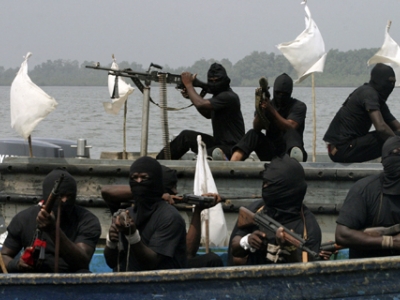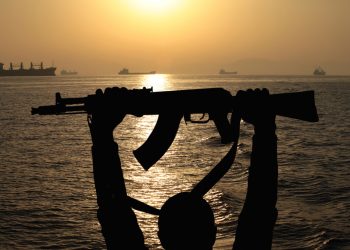Killing Two and Kidnapping Four
The attack was stated as occurring south of the Okwori oil field off Nigeria southern coast. The St Vincent and Grenadines-flagged barge, Jascon 33, built in 2007 and contracted under the Sea Trucks Group, had a crew of 27 onboard with 7 expatriates said to be onboard. It is capable of accommodating 200 people.
Two Nigerian Naval Guards were reported to have been killed during a gunfight with another 2 said to be wounded. Four expatriates, one Iranian, one Malaysian, one Thai and one Indonesian were kidnapped; there whereabouts are unknown at present.
This attack at a time when attacks in the Gulf of Guinea, which has seen a rise in piracy and robbery at sea in the region, have increased beyond that of East Africa where the summer monsoon has contributed to a decrease of attacks.
Attacks in the Niger Delta have become more common as criminal gangs involved in the theft of oil have pirated vessels for their cargo.
The International Maritime Bureau (IMB) has warned that Pirates/Robbers are often violent and have attacked, hijacked and robbed vessels, kidnapped crews along the coast, rivers, anchorages, ports and surrounding waters. A number of crew members were injured in past attacks.
A late report of an a violent attack in May demonstrated the willingness of pirates to assault crew members. At least six attacks have occurred in the Gulf of Guinea in July alone.
Although Nigerian pirates commonly release kidnapped crew following the theft of cargo, and ransoms are not demanded, the region has seen its risk status elevated.
For instance, Nautilus members workingin and transiting the Gulf of Guinea now have the protection of a new UK tripartite agreement on an ‘at risk’ piracy zone in the area.
The agreement by the national Warlike Operations Area Committee (WOAC) sets an ‘at risk’ zone demarcated to the west by the Greenwich Meridian Line and to the south by the two degree north line. It differs from the long standing Gulf of Aden agreement in that it covers all members working in the area – such as those supplying rigs – and not just transiting the area.
Under the Gulf of Guinea agreement, ship operators not following the recommendations made in the latest edition of ‘Best Management Practices’ for protection against Somalia-based piracy should pay staff extra for working the route, or allow them the right to refuse work in this zone.
Companies are now also asked to underwrite personal life insurance policies for seafarers serving on board vessels in the ‘at risk’ zone, to prevent them being invalidated.
Generally all waters in Nigeria remain risky, states IMB. Vessels are advised to be vigilant as many attacks may have gone unreported.
Source: Oceanus Live






























































